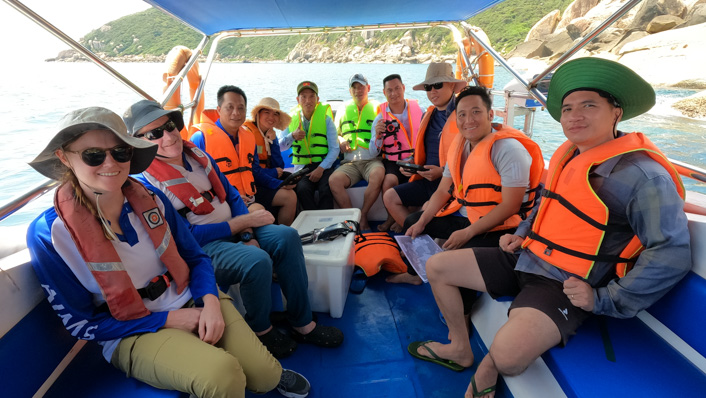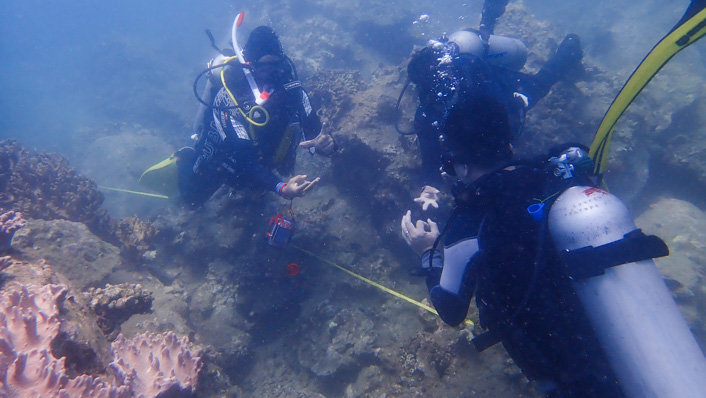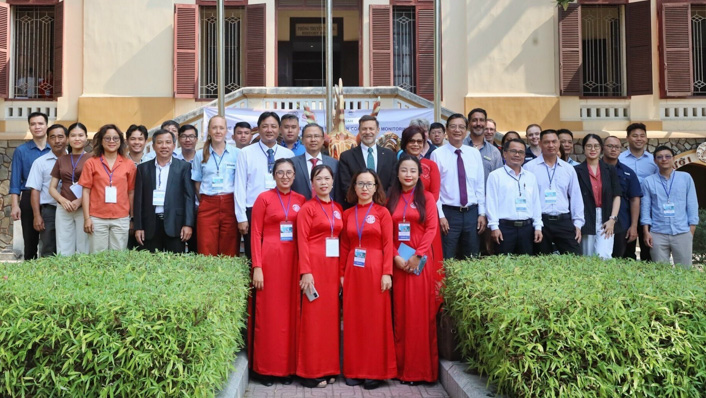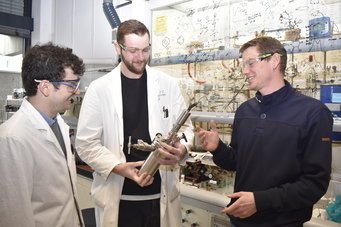New AIMS-developed reef monitoring technology is now being used by scientists in Vietnam.
Staff from AIMS travelled to Nha Trang to promote and exchange science knowledge to inform sustainable management of Vietnam’s coral reefs which support marine life and the local economy of many coastal communities.
Working with their colleagues from Vietnam’s Institute of Oceanography, AIMS engineers and scientists used an autonomous imaging system (ReefScan Transom) attached to their watercraft to record high-resolution images over large areas of coral reefs.
They then used machine learning and advanced analysis through ReefCloud to rapidly extract data from the images about the reef’s condition to provide comprehensive, standardised, and easily understandable reports.

AIMS representatives trained the local reef monitoring professionals to use the technology and helped them adapt it to meet their national needs.
Mr Scott Bainbridge, who leads the AIMS team that developed ReefScan, said the system enabled imagery collection across large scales.
“This information, combined with underwater surveys, will generate a large volume of data to describe the status of Vietnam’s coral reefs,” he said.
“It will transform reef monitoring and lead to better reef management.”

This latest exchange of knowledge between Australia and Vietnam builds on previous work. Last October, Institute of Oceanography representatives completed intensive training in advanced statistical analysis and coral identification at AIMS, in Townsville, Australia.
AIMS Research Team Leader and ReefCloud Director Dr Manuel Gonzalez Rivero said reef monitoring was the backbone of informed management, but traditional methods of reef monitoring were labour-intensive and expensive.
“As the effects from climate change and local pressures continue to threaten the sustainability of coral reefs, reef management informed by a timely scientific knowledge is critical to protecting the future of these valuable ecosystems,” he said.
Dr Gonzalez Rivero said scientific collaborations between the Australian Institute of Marine Science and the Institute of Oceanography in Nha Trang dated back to the 1990s.

“Nha Trang is Vietnam’s first marine protected area and a valuable tourist region, so preserving coral reefs here is of high importance,” he said.
“We expect the training and technologies provided by AIMS will assist in catalysing the scientific and conservation efforts in the region and throughout the country.
“The collaboration between AIMS and the Institute of Oceanography will bring together coral reef managers from across the coastal waters of Vietnam, enabling collaborative and innovative conservation efforts nationwide.”
Co-funded by the Department of Foreign Affairs and Trade, the mission was part of the Marine Resources Initiative. A ReefScan unit was presented to the Institute of Oceanography, with two more units due to be delivered in June.
Feature image: Sam Chan







